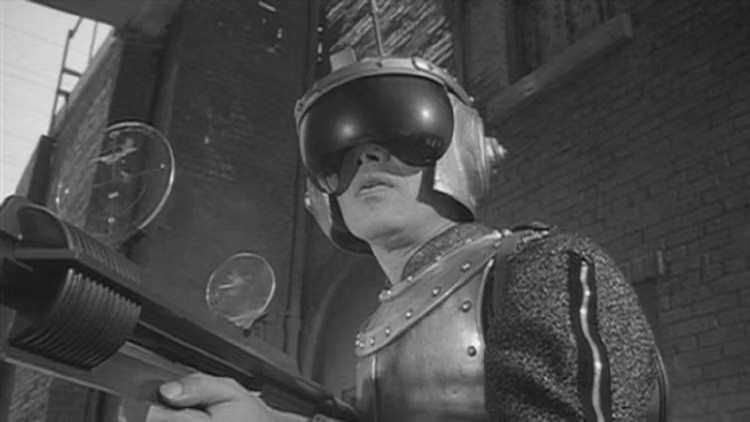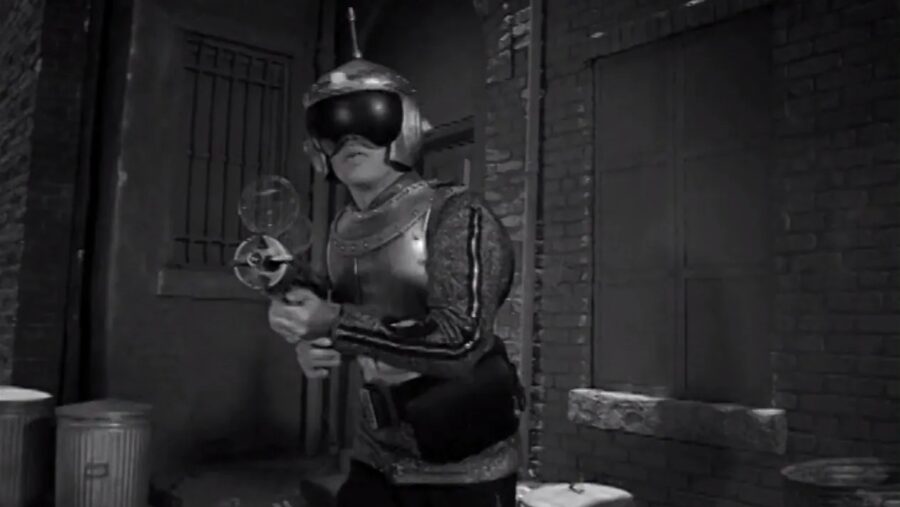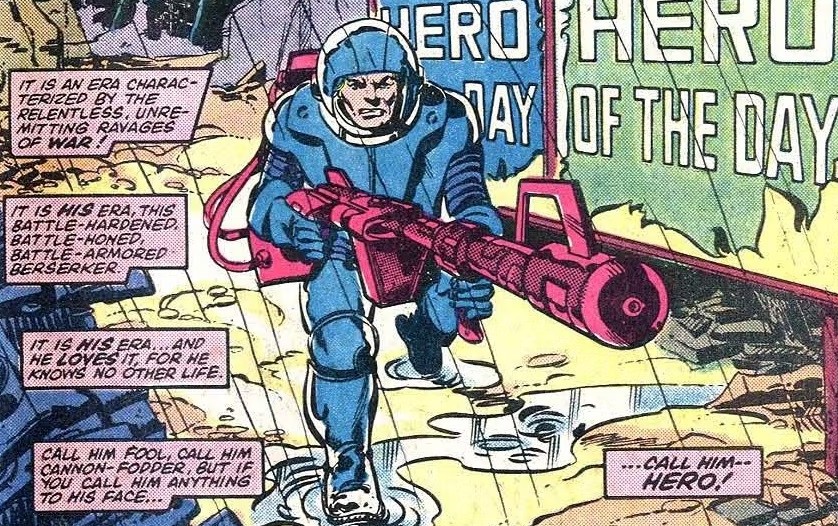Marvel Had To Give A Legendary Sci-Fi Writer Every Comic They Printed After They Stole His Story
After a Marvel writer used a Harlan Ellison story for an Incredible Hulk story, the publisher agreed to give the writer a lifetime subscription to all of their comics.
This article is more than 2 years old
In 1983, then Marvel Editor-in-Chief Jim Shooter agreed to give sci-fi writer Harlan Ellison a lifetime subscription to literally every comic book the company published as part of a hastily put together deal over the phone. Why did the company agree to it? According to Shooter, Bill Mantlo–co-creator of Guardians of the Galaxy‘s Rocket Raccoon as well as Cloak & Dagger–swiped an Ellison-written script for The Outer Limits when he wrote Incredible Hulk #286.

In 1957, Ellison’s short story “Soldier from Tomorrow” was published in the science fiction magazine Fantastic Universe and seven years later he wrote a script for “Soldier” — a 1964 episode of The Outer Limits which was based on the short story. Both stories featured soldiers from dystopian, ultra-militarized futures who are flung backward in time to the present. The story has since been the subject of a number of high profile accusations, and Marvel wasn’t actually the only target Harlan Ellison went after when it comes to the tale.
In particular Harlan Ellison took The Terminator to court, alleging the film was clearly based on his The Outer Limits episode which — like James Cameron’s film — featured two enemy soldiers from the future who travel to the present. The studio settled out of court with Ellison and added an acknowledgement to the writer in the film, but when it came time for the writer to lock horns with Marvel, his case was a lot more clear cut.


A year before The Terminator hit theaters, Incredible Hulk #286 came out, written by Bill Mantlo with art by Sal Buscema and Kim DeMulder. As Brian Cronin chronicled for CBR, the similarities between the Marvel story and Harlan Ellison’s “Soldier” were blatant. According to Shooter, Mantlo may as well have sent Ellison a letter telling him he was swiping the tale.
The futures both the characters from “Soldier” and the hero of “Hero” come from are similar, their dialogue has the same stinted, monosyllabic feel, and it’s even the blast from an energy weapon–like in the Outer Limits episode–that sends the futuristic soldier back in time. Really the only significant differences between the two stories is the appearance of the Hulk and, to some degree, Kang. While the villain himself isn’t in the story, the violent orders being broadcast to all of the dark future’s soldiers is revealed to be broadcast from a statue fashioned after the image of Kang the Conqueror.
In 2011, Jim Shooter posted a story to JimShooter.com in which he claimed that Bill Mantlo allegedly had a number of acts of plagiarism under his belt, with Incredible Hulk #286 being one example. Then Marvel’s Editor-in-Chief, Shooter wrote that he had looked over the Hulk story and signed off on it but hadn’t seen the Outer Limits episode it was based on. It was Marvel writer and editor Roger Stern, Shooter said, who called him after the issue hit the stands and said “Are you nuts?! This is a Harlan Ellison story!”
It was during the call with Stern, Shooter said, that his secretary at Marvel told him Harlan Ellison was on the other line. The science fiction writer had a reputation for being litigious, which could very well be why Shooter confessed to the swipe up front. Instead of taking the comic book company to court, Ellison said he’d let the matter rest for the same amount of money Bill Mantlo was paid for the offending issue, “an acknowledgement, plus a lifetime subscription to everything [Marvel Comics] ever published.”
“Harlan’s damages, by statute, would have been in the hundreds of thousands of dollars, and he had us dead to rights,” Shooter wrote, explaining why he felt nothing but gratitude and relief in giving in to Ellison’s comparatively humble demands. As CBR’s Cronin wondered when he wrote about the incident, we don’t know whether or not the agreement survived Marvel’s bankruptcy.
As Slate recalled in 2021, Marvel Comics filed for bankruptcy in 1996, and it’s possible their agreement with Harlan Ellison was scrubbed during the proceedings. Regardless, there are more than a few fans out there who would give their left arm for every single Marvel Comic published between 1983 and 1996.













